Into Film Clubs
Find out everything you need to know about starting an Into Film Club.

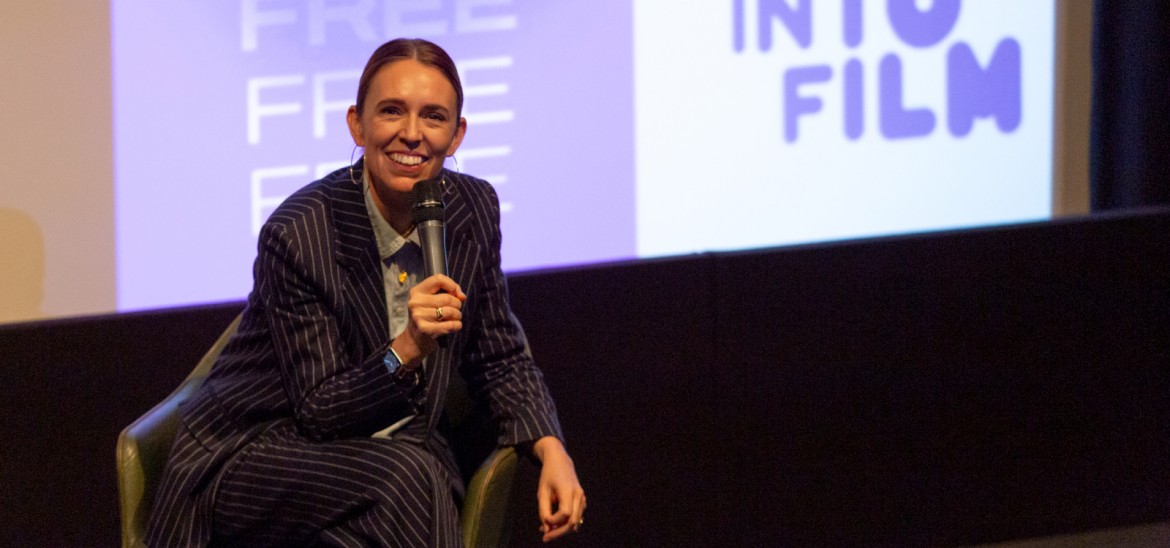

We were truly honoured to be joined at the Into Film Festival this week by former New Zealand Prime Minister Jacinda Ardern. With Prime Minister, a new documentary that charts her time in office due for release in the UK on 5 December, Ardern joined us to speak directly to young people about her inspirational story and offer her advice to the next generation.
Jacinda Ardern was thrust onto the global stage in 2017 when she unexpectedly became the Prime Minister of New Zealand. Throughout her five years in office, she became one of the most prominent female politicians in the world, and only the second woman ever to have a child whilst in power. With her emphasis on kindness and compassion in the face of many global leaders who preferred bravado, bluster and aggression, Ardern's reputation grew, all while balancing motherhood with her leadership, which was tested by everything from horrific terrorist attacks, natural disasters, and the COVID-19 crisis.
Ardern joined us at London's Regent Street Cinema for a special preview of Prime Minister, and took part in a lively Q&A with students from five lucky schools, hosted by Into Film's CEO Fiona Evans. As well as offering rare insights into her life and career, Ardern shared wisdom and advice for the young audience, and emphasised her hopes for future generations to follow in her footsteps and provide a more measured and compassionate alternative in an increasingly volatile world.
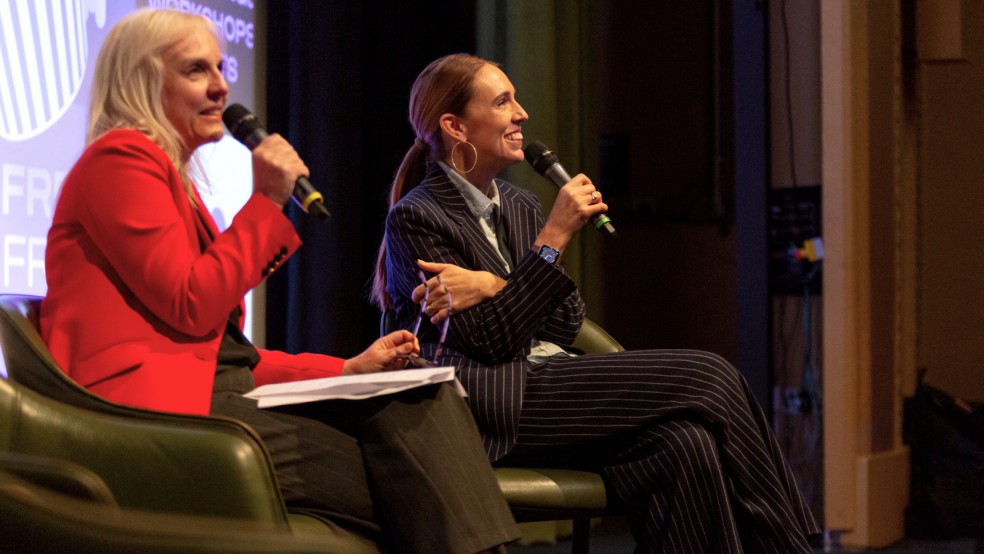
The five schools in attendance - Walthamstow School For Girls, The Charter School North Dulwich, Leaways School, Eltham Hill School, and Thomas Tallis School - spanned a range of ages, from Year 13 politics students right down to our youngest attendee, who was only ten years old. Below, we're sharing some highlights from the thoughtful and compelling Q&A session, with many of Ardern's responses going to show that the same advice can be equally valuable for a school pupil as it is for a world leader.
Danny, a Year 13 politics student from The Charter College in North Dulwich, asked:
"When dealing with the pandemic, and other national crises, what did you do to keep calm and de-stress?"
Jacinda: The thing that I would try to do was to sleep.
I thought when I became Prime Minister that if I was doing my job properly, I shouldn't be sleeping much. I thought I should be working, on behalf of New Zealand! When people asked if I was getting much sleep, I thought the right answer was "No, I'm working hard, maybe four hours a night".
But then I realised that actually it was harder to make good decisions, and it was harder to manage worry if I wasn't sleeping. So sleep was really key.
Also, you're not really allowed to turn your phone off as Prime Minister, because something bad could happen. So it became a symbol of bad news for me if I saw certain people pop up on my phone, because then I knew that something bad had happened. So I was carrying this little source of anxiety around with me everywhere. And that started to take its toll.
So trying to learn how to put those things that you know are making you feel worse, put them away, put them out of your mind. And that's not much different from everyone else. So sleep, and try and detach sometimes.
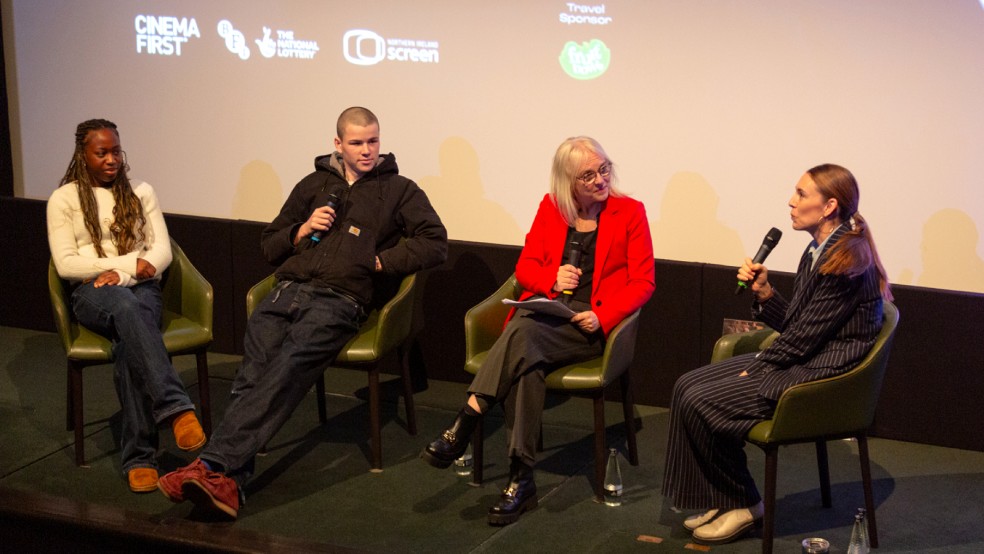
Lea, from Leaways School, an SEMH (Social, Emotional, and Mental Health) school, was our youngest audience member at the age of just ten. Lea asked:
"I am the only girl in my class and sometimes I find the boy's opinions and ideas take over. You're a strong female leader in the world of politics, which is often dominated by men. What was it like to stand your ground and be a strong voice for other girls?"
Jacinda: I remember when I was about 13 or 14, my favourite subject was metalwork. I was also the only girl in my class. And I loved it so much, I became good at it. At the end of the year, I got the prize for top of my metalwork class, and you should have seen the faces on all the boys in my class!
Sometimes it could feel a bit lonely, and sometimes I wondered whether it'd be easier if I didn't try as hard. But I think the thing I realised is that I was doing a subject I loved, and which made me happy, and which I was good at, and so I shouldn't hold myself back.
And that was a really good lesson for me to learn. Because politics? I loved it. And sure, there are lots of boys in politics. But there are a few girls too. And the first person I ever voted for was a woman [Helen Clarke] who became Prime Minister. And for 9 years I watched a woman run New Zealand. And she showed me that absolutely girls and women belong in politics. So she carved a path, and made it so much easier for me to follow.
So just remember, even when the first step feels hard, you're doing something not just for you, but for a whole bunch of other people as well, and it will make things easier for them next time.
So just remember, even when the first step feels hard, you're doing something not just for you, but for a whole bunch of other people as well, and it will make things easier for them next time.
Jacinda Ardern
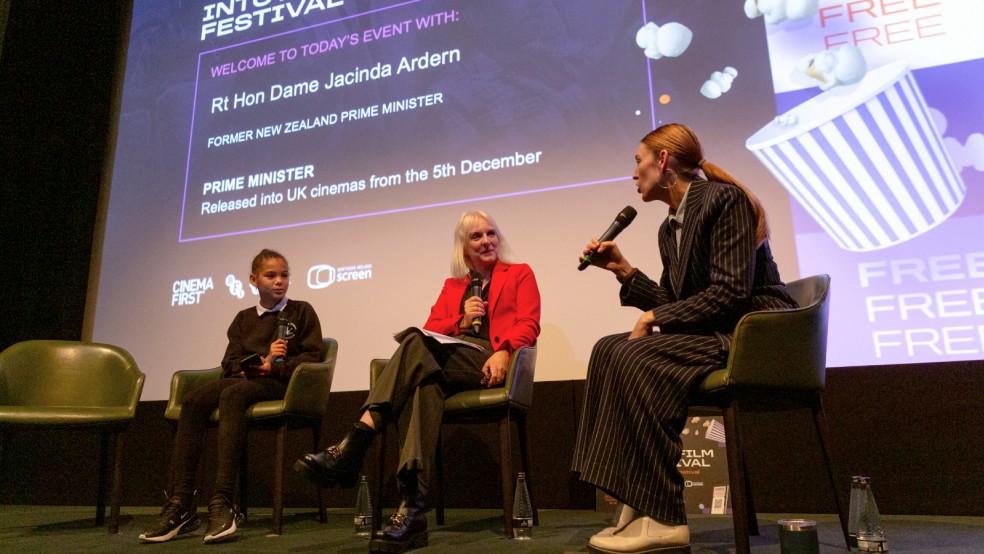
Holly B, from Eltham Hill School, asked:
"If you could have a conversation now with a younger version of yourself, what would you talk about, what advice would you give, and why?"
Jacinda: I wrote a book when I came out of office. I didn't think I would, because politicians' books can often be a bit boring. Generally only people who are interested in politics read them, and they're often framed as if you're just trying to rewrite history or justify your mistakes, and I didn't want to do that.
But someone said to me, 'What if your book could help a younger version of yourself? What if it could help someone who has doubts, or imposter syndrome?' And I thought, well, that might be useful. That could be worthwhile. So that's the book I tried to write.
So really that book is what I would tell my younger self, and probably the most important message in it is about imposter syndrome.
I cannot remember a time when I haven't lacked confidence in some way. There's never a time when someone has said to me 'Can you go and give this speech' or 'Can you go and do this thing' where I haven't thought "Oh, I'm not sure I'm the best person for that" or "Someone else could be better" or "What if I make a mistake and everyone knows I shouldn't be there?".
I have had those thoughts my entire life.
So I think what I would tell myself is to stop seeing those things as weaknesses, and don't let them hold you back. You never know what you're capable of until you're doing it. Because if I had the choice to be Prime Minister, I would have said no. But I didn't really have a normal choice, so I was forced to try and figure out that I could do it. I'd hate to think that anyone will not take on an opportunity just because they're holding themselves back. So that would be my advice: You just don't know what you can do until you do it. So do it!
I'd hate to think that anyone will not take on an opportunity just because they're holding themselves back... You just don't know what you can do until you do it. So do it!
Jacinda Ardern
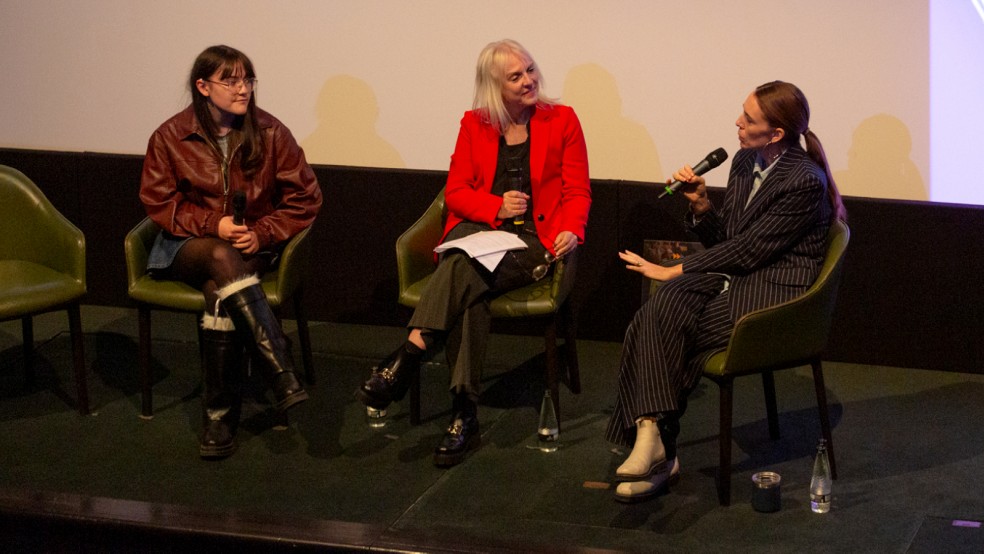
Another student from The Charter School asked:
"What can western democracies do to rebuild trust with their citizens especially young people?"
Jacinda: One of the usual ways that we can tell how the public are feeling about politics is through a question that gets asked across a number of different countries. And that question is 'Do you think the next generation will be better off than the last?'
And that question is usually a sign of how optimistic people are feeling. And at the moment those answers and numbers are really bad. That means people are not feeling hopeful, they're not feeling like we're building anything better, they think things are getting worse.
And when we think about why that is, you can see how much of the decision-making over a number of decades is making things harder and harder for young people. Lots of technological changes, which mean job security is not what it used to be; it's becoming more expensive to get an education and get qualified to work; it's harder to own your own home; people are putting off having families; and then there's the question of climate change, and what are we leaving behind?
So I can see why people don't feel like politicians are acting like good guardians. And this is a mindset we have in New Zealand, with the idea of 'Kaitiakitanga', which is a Māori term. It's the idea that we are guardians of the land in which we live, but only on behalf of the next generation. So we're doing a really bad job of being guardians.
So at this moment in time I think there are some politicians who are going out and saying 'Do you know what the problem is? The problem is these people over here' and they're using fear and blame as a way to tap into the insecurity people feel over their future. And I disagree with that. I think fear and blame only make things worse. They polarise, they make people angry, they make people feel like hostile acts are okay because of their sense of grievance. But it never answers anything. It never fixes the problems. And our job as politicians is actually to solve problems! Not to blame people.
And no question, solving those problems is hard, and requires tough decisions. But we have to demonstrate to the next generation that we know that we have a job to do on their behalf, and be willing to make this our cause. We need more of that, and less blame.
We have to demonstrate to the next generation that we know that we have a job to do on their behalf, and be willing to make this our cause.
Jacinda Ardern
And of course, we couldn't let the opportunity pass without posing a question of our own, as we asked:
"In what way do you think film and documentary are important, especially for young people?"
Jacinda: For me, at its core, politics relies on storytelling. And you can see different politicians rely on trying to shift people's mindsets, views and opinions in different ways. Some will stand up and quote a bunch of statistics, and tell you all the logical reasons why we should do something differently. And then others might just stand up and tell you a story.
And storytelling is so compelling because actually it's how we pull out people's empathy, it's how we shift minds by putting someone in someone else's shoes. That can be hugely impactful.
So I chose to be a storyteller in politics, to try and make the world better. And some people try and make the world better by showing film to shift minds and build understanding. So whichever path you take, or whatever it is you do in life, never let anyone trivialise the importance of storytelling.
Whichever path you take, or whatever it is you do in life, never let anyone trivialise the importance of storytelling.
Jacinda Ardern
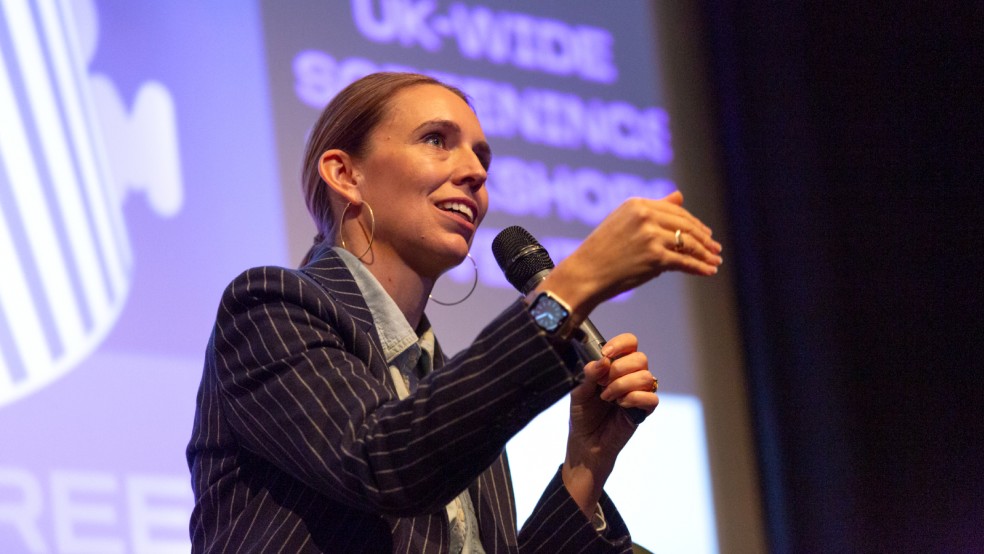
The Into Film Festival continues across the UK until Friday 28 November, with thousands more free film screenings, special events, previews, and interactive Q&A sessions with screen industry professionals taking place, making the Festival the perfect opportunity to support young people in enjoying the big screen experience and exploring the world of film. And thanks to our partners at Fruit Bowl, a travel bursary is helping even more young people enjoy the big screen experience.
The Into Film Festival is possible thanks to the support of Cinema First and multiple partners across the cinema sector.
Viewing 4 of 4 related items.

Find out more about our streaming service, designed specifically for UK schools.